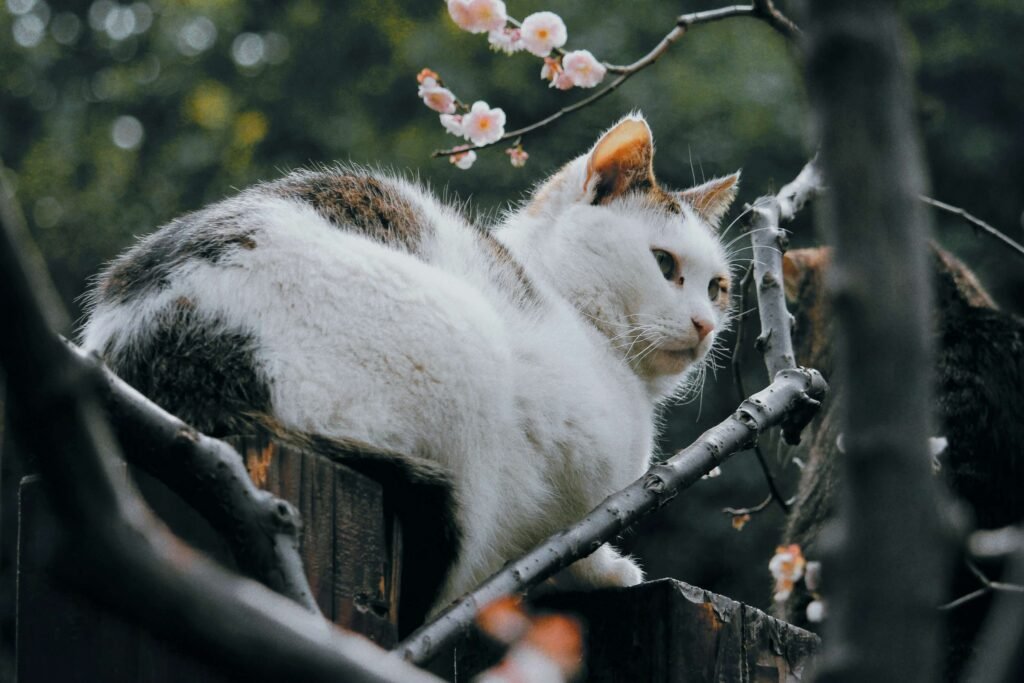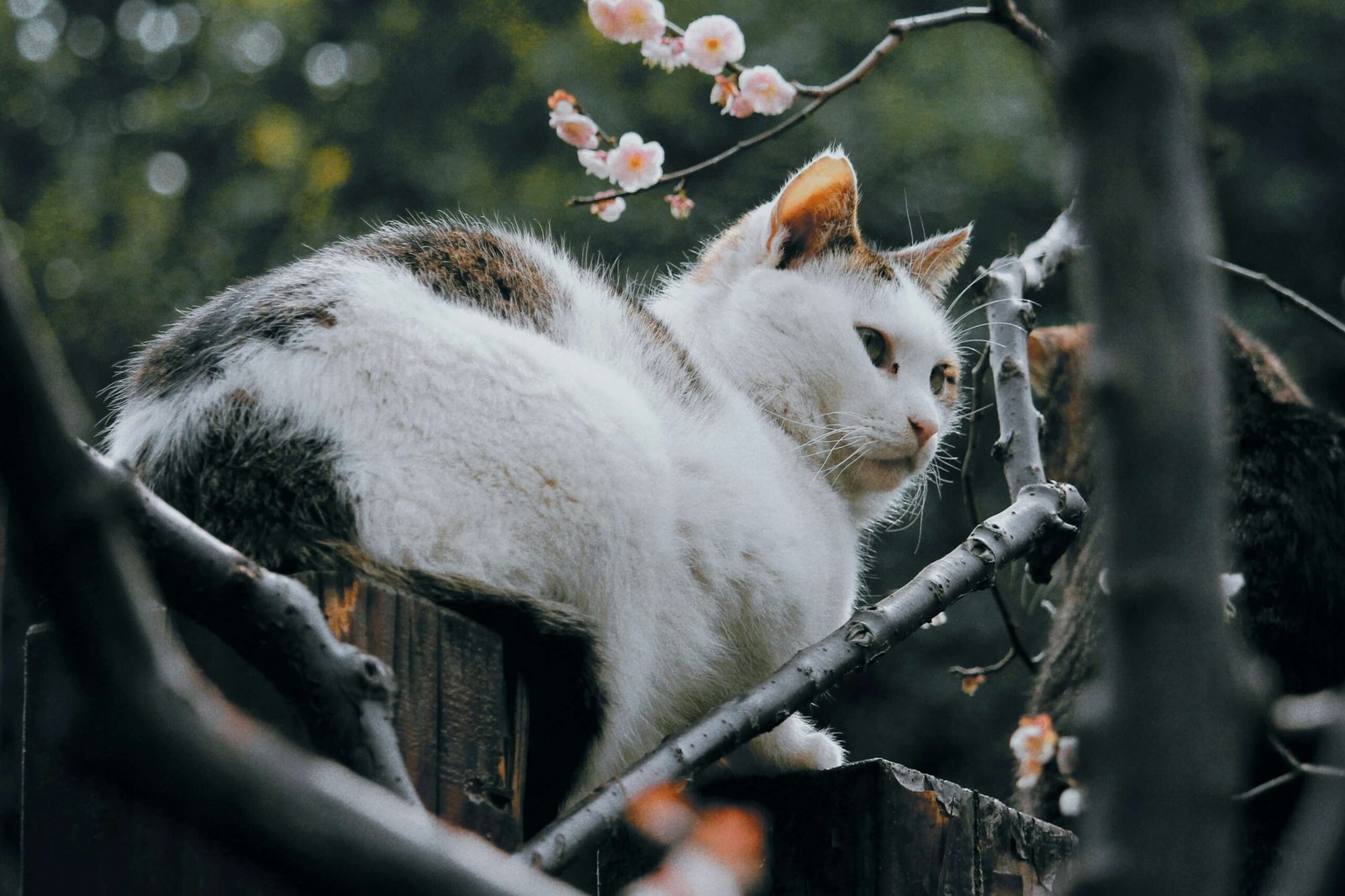The Charming World of Japanese Munchkin Cats
When it comes to feline companions, few breeds capture hearts as effortlessly as the Japanese Munchkin cat. With their playful personalities, adorable short legs, and strikingly expressive eyes, these cats are a delightful addition to any household. Originating from Japan, this unique breed has gained global popularity due to its endearing appearance and affectionate nature. In this blog post, we’ll dive into everything you need to know about Japanese Munchkin cats, from their distinctive traits to tips on how to care for them. Whether you’re a seasoned cat lover or considering adopting one for the first time, this guide will help you understand why these little felines are so special.
What Makes Japanese Munchkin Cats Unique?
Japanese Munchkin cats stand out among other breeds due to their combination of physical features and personality traits. Here’s what makes them truly one-of-a-kind:
Short Legs:
Their most iconic feature is their stubby legs, which result from a natural genetic mutation. These short limbs give them a waddling gait that many find irresistibly cute.Compact Size:
Despite their small stature, Japanese Munchkin cats are surprisingly agile and energetic. They may not be tall, but they make up for it with their boundless enthusiasm.Expressive Eyes:
Their large, almond-shaped eyes are often described as windows to their soul. These captivating orbs can range in color from deep amber to vibrant green.Playful Nature:
Known for their mischievous antics, these cats love interactive playtime. Toys, puzzles, and even simple household items can keep them entertained for hours.Affectionate Temperament:
Japanese Munchkin cats thrive on human interaction. They enjoy cuddling and are known to form strong bonds with their owners.
These remarkable qualities make Japanese Munchkin cats an ideal choice for families and individuals alike. If you’re looking for a pet that brings joy and warmth into your life, this breed might just be perfect for you.
Caring for Your Japanese Munchkin Cat
Taking care of a Japanese Munchkin cat requires attention to their specific needs. While they are generally low-maintenance pets, here are some essential tips to ensure they stay healthy and happy:
Balanced Diet:
Feed them high-quality cat food rich in protein and nutrients. Avoid overfeeding, as obesity can exacerbate issues related to their short legs.Regular Exercise:
Encourage daily activity through toys and climbing structures. Even though they have shorter legs, they still need plenty of exercise to maintain muscle tone.Grooming Routine:
Brush their coat weekly to remove loose fur and prevent matting. This also helps reduce shedding around the house.Veterinary Checkups:
Schedule routine visits to the vet to monitor their overall health. Pay special attention to their spine and joints, as these areas can sometimes be affected by their unique physique.Mental Stimulation:
Provide puzzle feeders or interactive games to keep their minds sharp. Mental enrichment is crucial for preventing boredom and destructive behavior.
By incorporating these practices into your routine, you’ll create a nurturing environment where your Japanese Munchkin cat can flourish. Remember, a happy cat equals a happy home!
Check this guide 👉Munchkin Cat Price: Best 7 Expert Tips!
Check this guide 👉Ashera Cat Price: Best 7 Expert Tips!
Check this guide 👉The Mythical Chimera Cat: Best 7 Expert Tips!

Key Traits | Care Tips |
|---|---|
Short legs (genetic trait) | Ensure proper nutrition to avoid weight gain |
Compact size | Offer vertical spaces for exploration |
Expressive eyes | Clean eye area regularly to prevent infections |
Playful demeanor | Rotate toys to keep them engaged |
Affectionate personality | Spend quality time bonding every day |
Fun Facts About Japanese Munchkin Cats
Did you know there’s more to Japanese Munchkin cats than meets the eye? Here are some fascinating tidbits that showcase their charm:
Historical Roots:
The Munchkin breed’s origins trace back to a natural genetic mutation discovered in the United States, but Japanese breeders refined its distinct traits.Agility Masters:
Despite their short legs, they excel at jumping and climbing. Don’t underestimate their ability to scale furniture!Social Butterflies:
These cats get along well with children, dogs, and other pets, making them excellent companions for multi-pet households.Unique Vocalizations:
Japanese Munchkins are known for their soft chirps and trills, adding a musical touch to their communication style.Pop Culture Icons:
Their adorable looks have made them internet sensations, frequently featured in memes and viral videos.
These fun facts highlight why Japanese Munchkin cats continue to captivate audiences worldwide. Their blend of charm and quirkiness ensures they remain beloved by fans everywhere.
Common Misconceptions About Japanese Munchkin Cats
While Japanese Munchkin cats are undeniably adorable, several myths surround this breed. Let’s debunk some common misconceptions:
They Can’t Jump High:
Contrary to popular belief, their short legs don’t hinder their jumping abilities—they can leap onto counters and shelves with ease.They Require Special Diets:
Unless prescribed by a vet, they don’t need specialized food. A balanced diet works perfectly fine for maintaining their health.Their Legs Cause Pain:
Most Japanese Munchkins live pain-free lives. However, responsible breeding practices are vital to minimize potential joint issues.They’re Prone to Laziness:
Far from lazy, these cats are incredibly active and enjoy exploring their surroundings.All Munchkins Are Identical:
Each cat has its own unique personality and markings, proving no two Munchkins are exactly alike.
Understanding these truths allows prospective owners to appreciate the breed without falling prey to misinformation.
Health Considerations for Japanese Munchkin Cats
While Japanese Munchkin cats are generally healthy, it’s important to be aware of certain health considerations associated with their unique physique. Responsible ownership involves understanding potential risks and taking proactive steps to ensure their well-being.
Spinal Health:
Due to their elongated spine and shorter legs, some Munchkins may experience spinal issues. Regular vet checkups can help detect problems early.Joint Care:
Their unique leg structure may predispose them to joint stress. Providing soft bedding and avoiding excessive jumping can mitigate risks.Obesity Prevention:
Maintaining an ideal weight is crucial, as extra pounds can strain their joints and spine. Portion control and regular exercise are key.Dental Hygiene:
Like all cats, Munchkins are prone to dental issues. Brushing their teeth regularly can prevent gum disease and tooth decay.Parasite Control:
Fleas, ticks, and worms can affect their health. Use preventive treatments as recommended by your veterinarian.
By staying informed about these health aspects, you can provide your Japanese Munchkin cat with the care they need to lead a long, happy life.
Training Tips for Japanese Munchkin Cats
Japanese Munchkin cats are intelligent and eager to learn, making them great candidates for training. With patience and consistency, you can teach them behaviors that enhance their quality of life and strengthen your bond.
Litter Box Training:
Most Munchkins instinctively use a litter box, but positive reinforcement can reinforce good habits.Basic Commands:
Teach simple commands like “come” or “stay” using treats and praise to encourage cooperation.Leash Training:
Introduce a harness gradually to acclimate them to outdoor walks safely.Scratching Posts:
Redirect scratching behavior to designated posts by rewarding them when they use it.Interactive Play:
Use toys to simulate hunting scenarios, satisfying their natural instincts while keeping them active.
With consistent training, your Japanese Munchkin cat will become a well-behaved and joyful companion who thrives in your care.
Fun Activities to Enjoy with Your Japanese Munchkin Cat
Engaging in fun activities with your Japanese Munchkin cat not only strengthens your bond but also keeps them mentally and physically stimulated. These playful interactions ensure they remain happy and healthy.
Toy Chase Games:
Use feather wands or laser pointers to encourage chasing and pouncing—activities they naturally love.Puzzle Feeders:
Fill puzzle feeders with treats to challenge their problem-solving skills during mealtime.Hide-and-Seek:
Hide small toys or snacks around the house for them to discover, stimulating their curiosity.Climbing Adventures:
Set up cat trees or shelves at varying heights to let them explore vertical spaces safely.Interactive Apps:
There are apps designed specifically for cats, featuring moving objects on a tablet screen to entertain them.
Incorporating these activities into your routine will keep your Japanese Munchkin cat entertained and foster a deeper connection between the two of you.
Frequently Asked Questions About Japanese Munchkin Cats
Are Japanese Munchkin cats suitable for apartments?
Absolutely! Their compact size and adaptable nature make them perfect for apartment living.
Do they require extra grooming compared to other breeds?
Not necessarily. Regular brushing suffices unless they have longer fur.
Can they coexist peacefully with dogs?
Yes, they tend to get along well with dogs, especially if introduced properly.
How long do Japanese Munchkin cats typically live?
With proper care, they can live 12–15 years or more.
Is the breed prone to genetic disorders?
Responsible breeding minimizes risks, but regular vet checkups are recommended.
Why Choose a Japanese Munchkin Cat?
In conclusion, Japanese Munchkin cats embody the perfect mix of cuteness, intelligence, and affection. Their unique appearance and lively personalities make them unforgettable companions. By understanding their needs and dispelling myths, you can provide a loving home where they’ll thrive. Whether you’re drawn to their playful antics or their soulful gazes, these charming felines are sure to bring endless happiness into your life. So, if you’re ready to welcome a bundle of joy into your family, consider opening your heart—and home—to a Japanese Munchkin cat.
Dog Tapeworm Life Cycle: Best 7 Expert Tips! – Learn how tapeworms infect dogs, spot symptoms, and break the cycle with expert prevention strategies.
Anxious Cat Body Language: Best 7 Expert Tips! – Learn to spot signs of stress, understand triggers, and help your cat feel safe and relaxed.
Anxious Dog Body Language: Best 7 Expert Tips! – Learn to spot signs of anxiety, respond effectively, and help your dog feel safe and secure.
Is Breeding Dogs Bad? Best 7 Expert Tips! – Explore the ethics, benefits, and risks of dog breeding to make informed decisions for a better future.





